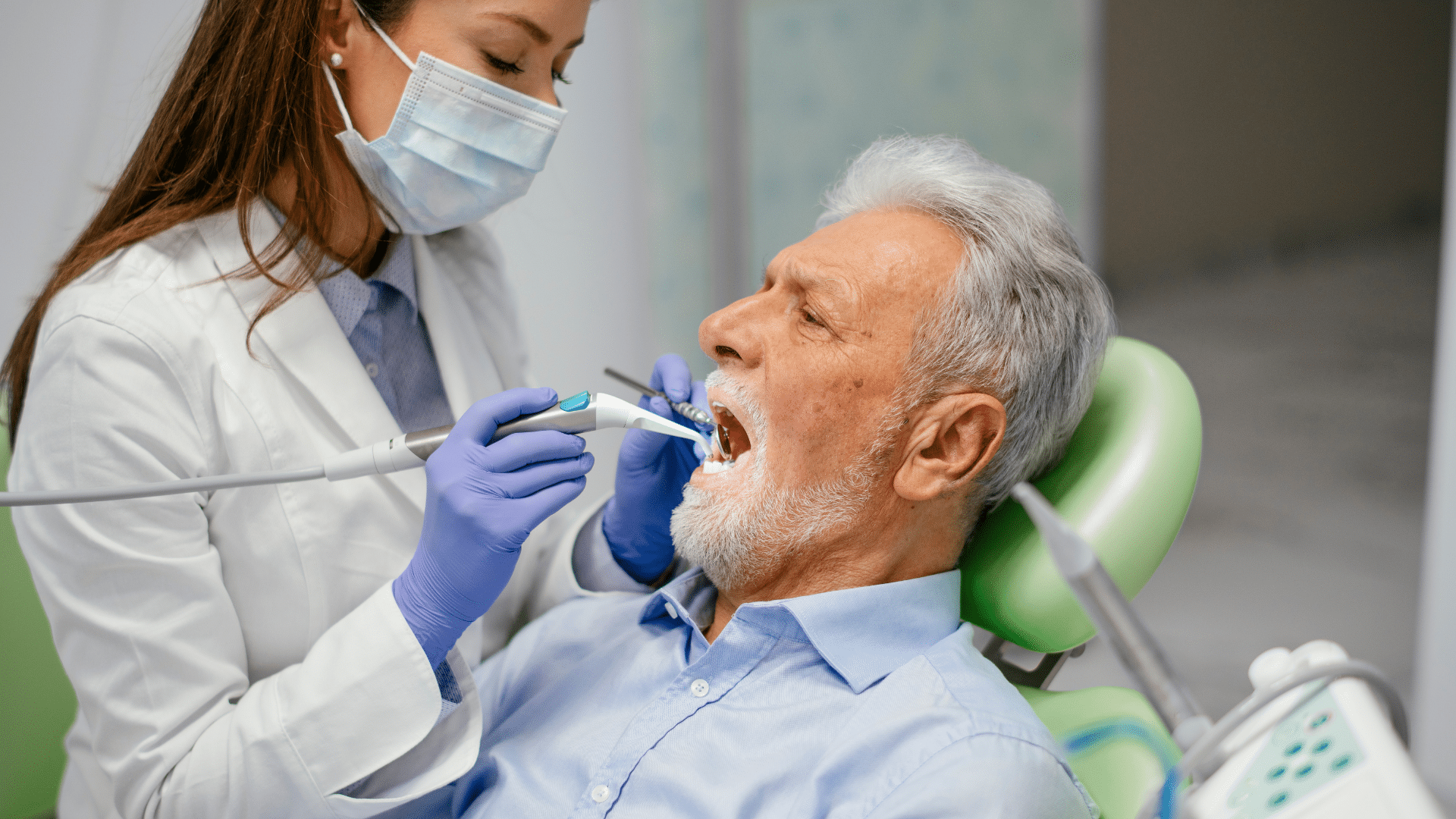As people age, dental health can become an important part of feeling well. Dental issues can affect quality of life as much as any other ailment, and many seniors tend to leave oral health issues untreated. Recognizing dental problems and taking preventative measures to protect the mouth can have an enormous impact on quality of life. There are some of the top dental issues seniors face, including ways to prevent them.
Tooth decay in senior adults
Tooth decay is a prevalent issue among seniors, with statistics showing that 96% of Americans over the age of 65 have experienced cavities, and 1 in 5 have untreated tooth decay. This problem may stem from factors such as poor diet, inadequate oral hygiene, or the use of alcohol and tobacco. Seniors should be vigilant for signs of tooth decay, such as increased tooth sensitivity or the appearance of brown, black, or white stains on their teeth.
Preventing tooth decay involves maintaining good oral hygiene practices. Seniors should brush and floss their teeth at least twice a day, and if mobility issues are present, they can consider using an electric toothbrush. Seeking prompt dental treatment for cavities is essential to prevent further decay and potential tooth loss. Additionally, regular dental check-ups can help identify and address any early signs of decay.
Dry mouth in seniors
Many common medications, including antidepressants, antihistamines, pain relievers, and diuretics, can cause dry mouth as a side effect. This is because these medications often suppress the production of saliva, an important fluid that washes away food particles, neutralizes acids, and prevents the growth of bacteria in the mouth.
Chronic dry mouth in seniors can have a significant impact on their dental health. Without enough saliva, food debris can easily accumulate, creating a breeding ground for bacteria. This can lead to increased plaque, tooth decay, gum inflammation, and even oral infections. Additionally, dry mouth can make it difficult to speak, swallow, and wear dentures, further impacting quality of life.
Drinking plenty of fluids, chewing sugar-free gum, and using oral lubricants can help stimulate saliva production. Avoiding caffeine and alcohol, which can worsen dry mouth, is also beneficial. In some cases, your doctor may be able to switch medications to one with a less pronounced dry mouth side effect.
Gum disease can be prevented
Gum disease affects approximately 2 in 3 adults aged 65 or older. Seniors are more susceptible to gum disease for several reasons. As people age, their immune systems weaken, making it harder to fight off infection. On top of that, the gums naturally recede with age, exposing the more sensitive root surface of the tooth to plaque and bacteria. As noted earlier in this article, having a dry mouth from medications can also lead to periodontitis.
There are several things seniors can do to prevent gum disease. Maintaining good oral hygiene habits is a must. Brushing your teeth twice a day and flossing daily will help remove plaque and bacteria from your teeth and gums. Lifestyle changes can also help fend off gum disease. Quitting smoking is one of the best things you can do for your overall health, including your oral health. Eating a healthy diet rich in fruits, vegetables, and whole grains can also help boost your immune system and fight off infection. Finally, managing any underlying health conditions, such as diabetes, can also help reduce your risk of developing gum disease.
Here are some additional tips for preventing gum disease in seniors:
- Use a soft-bristled toothbrush and gentle brushing technique.
- Consider using an electric toothbrush, which can be more effective at removing plaque.
- Use a fluoride toothpaste, which can help strengthen tooth enamel.
- Drink plenty of water to stay hydrated and promote saliva production.
- Avoid sugary drinks and snacks, which can feed bacteria.
One of the realities of aging is that long-term habits and lifestyle choices can impact dental health. That doesn’t mean seniors still can’t take good care of their mouths and prevent oral problems. Practicing good hygiene, getting regular and timely dental care, and getting plenty of fruits and vegetables can help preserve a smile.







